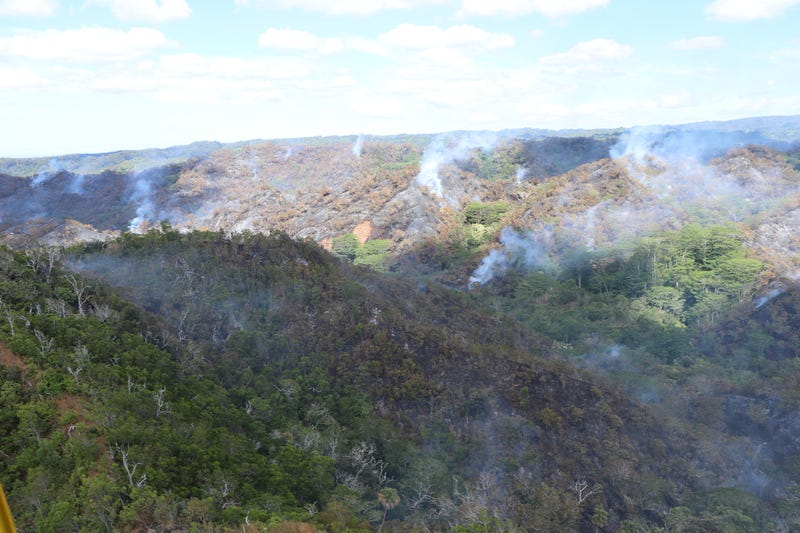
Just months after a wildfire destroyed an entire town and left at least 99 people dead, Hawaii is in the grips of another devastating blaze.
This time, the fire is burning in a remote rainforest on Oahu, home to nearly two dozen unique or fragile species. It's burning in heavy timber and through native vegetation, including Koa and 'Ōhi'a trees and Uluhe ferns.
The Mililani Mauka Fire was first spotted on Oct. 30, though its cause has not been determined. Over the weekend, officials said the fire had scorched about 1,681 acres and was 90% contained. While flames are no longer visible, the fire is still smoldering as of Tuesday.
The fire has already destroyed part of the Oahu Forest National Wildlife Refuge, which boasts 22 endangered species, according to the U.S. Fish and Wildlife Service.
Because the terrain is very rough and inaccessible, helicopters are being used to try and douse the flames with tens of thousands of gallons of water.
Mike Walker, with the Division of Forestry and Wildlife, said the impact from the fire is devastating.
"A fire can cause the plant composition to change, allowing invasive weeds and plants to literally spread like wildfire. Fire also impacts the water intake into the ground. Depending on the burn severity, you can create hydrophobic soils," Walker said in a statement. "That means after rains, the soil will shed the water rather than pull it in. So, we're really concerned about the loss of the watershed's ability to collect water for our aquifers."
When a wildfire burns through a native forest, it damages the ability of the land to capture and absorb water, according to Emma Yuen, with the Division of Forestry and Wildlife.
"When you lose vegetation, a native-forest-to- bare-ground scenario, you see 15 times slower absorption of rainwater into the ground. This means when it rains, there'll be more flooding because the burned soil becomes water repellent, and the rain runs off instead of soaking in," she said.
Follow KNX News 97.1 FM
Twitter | Facebook | Instagram | TikTok
